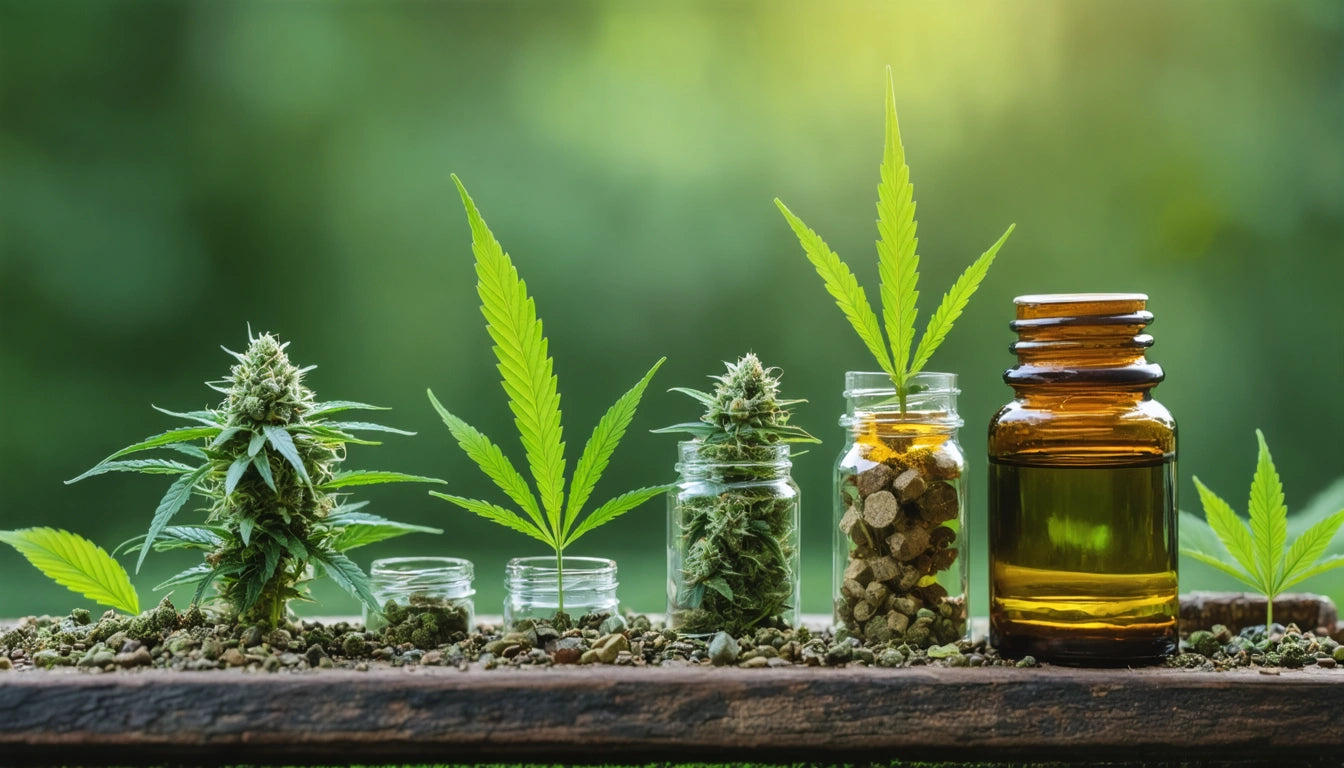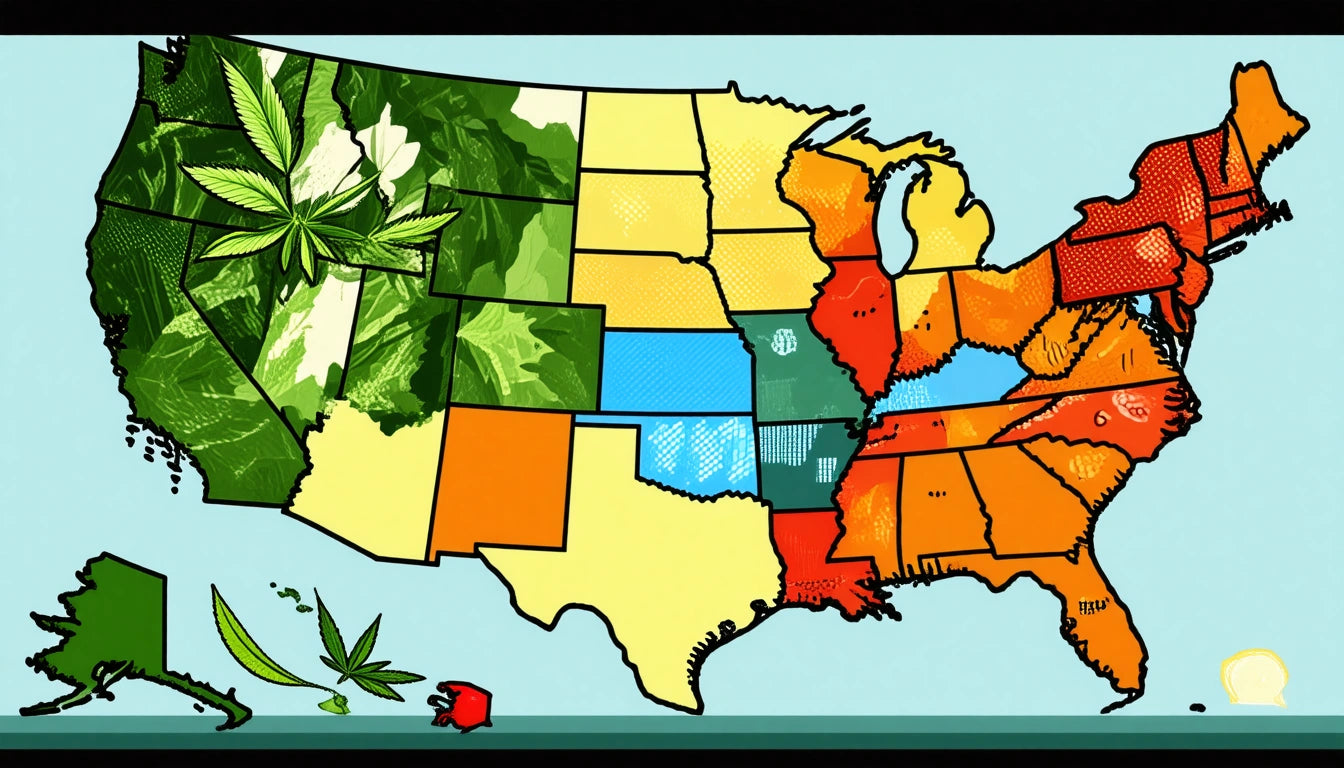Table of Contents
- Current Status of Cannabis in Pennsylvania
- Legislative Efforts and Recent Developments
- Public Opinion and Support for Legalization
- Potential Economic Impact of Legalization
- How Neighboring States Influence PA's Cannabis Policy
- Preparing for a Regulatory Framework
- Realistic Timeline for Pennsylvania Cannabis Legalization
The Future of Cannabis Legalization in Pennsylvania: What to Expect
As more states across America embrace recreational cannabis, many Pennsylvanians are asking: when will weed be legal in PA? The Keystone State legalized medical marijuana in 2016, but recreational use remains prohibited despite growing support among residents and lawmakers. This article examines the current landscape, legislative efforts, and provides insights into when Pennsylvania might join the ranks of states with legal recreational cannabis.
Current Status of Cannabis in Pennsylvania
Pennsylvania currently allows cannabis for medical use only. The state's medical marijuana program serves over 400,000 registered patients, making it one of the largest in the country. However, recreational use remains illegal, with possession of small amounts typically resulting in misdemeanor charges.
While some municipalities including Philadelphia and Pittsburgh have decriminalized possession of small amounts, statewide recreational legalization requires legislative action. This patchwork approach has created confusion about enforcement and access across different parts of the state.
Legislative Efforts and Recent Developments
Several bills to legalize recreational cannabis have been introduced in the Pennsylvania legislature in recent years. The most significant progress came in 2021 when Senators Street and Laughlin introduced a bipartisan bill for adult-use legalization. While this bill didn't pass, it represented growing bipartisan interest in the issue.
Governor Josh Shapiro has expressed support for recreational legalization, making it part of his campaign platform. He has consistently mentioned cannabis legalization as a potential source of tax revenue that could help address budget concerns, particularly as the state faces questions about when will the PA budget be passed.
Recent Legislative Developments
- Senate Bill 846 (2023) - Proposed framework for adult-use cannabis
- House Bill 2050 - Focused on social equity and expungement provisions
- Budget negotiations including potential cannabis tax revenue
Public Opinion and Support for Legalization
Public support for cannabis legalization in Pennsylvania has grown substantially. Recent polls show approximately 60% of Pennsylvania residents support legalizing recreational marijuana, up from about 40% a decade ago. This shift mirrors national trends toward greater acceptance of cannabis.
Demographics play a significant role in this support, with younger voters overwhelmingly favoring legalization. As these voters make up an increasing portion of the electorate, political pressure for legalization continues to build across party lines.
Potential Economic Impact of Legalization
Economic considerations are central to the debate about when will Pennsylvania legalize weed. Projections suggest that legal recreational cannabis could generate between $400 million and $1 billion in annual tax revenue for the state, helping to address budget shortfalls.
Beyond tax revenue, legalization would create thousands of jobs across cultivation, processing, retail, and ancillary services. These economic benefits have become increasingly persuasive to lawmakers who previously opposed legalization on other grounds.
Projected Economic Benefits
- Annual tax revenue: $400 million to $1 billion
- New jobs created: 10,000 to 30,000
- Reduced criminal justice costs
- New business opportunities in rural and urban areas
How Neighboring States Influence PA's Cannabis Policy
Pennsylvania is increasingly surrounded by states that have legalized recreational cannabis. New York and New Jersey have operational adult-use markets, while Maryland recently launched its recreational program. This regional pressure creates both economic and practical challenges for Pennsylvania.
When neighboring states legalize cannabis, they capture tax revenue from Pennsylvania residents who cross state lines to purchase products legally. This cross-border commerce creates enforcement challenges and loses potential tax revenue, a situation that has accelerated legalization efforts in other states facing similar circumstances.
Preparing for a Regulatory Framework
When will pot be legal in Pennsylvania depends partly on developing an appropriate regulatory framework. Any legalization bill will need to address licensing, taxation, social equity provisions, and public safety concerns.
Child safety remains a critical consideration in cannabis regulation. Proper safety protocols for cannabis packaging must be implemented to prevent accidental consumption by minors, similar to requirements for prescription medications and household chemicals. These safety measures will be essential components of any comprehensive legalization framework.
Pennsylvania can look to successful models in other states while tailoring regulations to its unique needs. The state's existing medical marijuana program provides some regulatory infrastructure that could be expanded for recreational use.
Key Regulatory Considerations
- Licensing structure and fees
- Testing requirements for potency and contaminants
- Marketing restrictions
- Social equity provisions
- Local opt-out provisions for municipalities
Realistic Timeline for Pennsylvania Cannabis Legalization
Based on current political dynamics and legislative progress, Pennsylvania could see recreational cannabis legalization within the next 1-3 years. The most optimistic projections suggest legislation could pass as early as 2024, with implementation beginning in 2025.
However, even after legislation passes, establishing a functional market typically takes 12-18 months. This includes developing regulations, processing license applications, and allowing businesses to become operational. The question of when will PA legalize recreational weed must account for both legislative and implementation timelines.
For Pennsylvanians wondering will weed be legal in PA, the answer increasingly appears to be yes, though the exact timeline remains uncertain. The combination of public support, economic incentives, and regional pressure suggests legalization is becoming a matter of when, not if.
As Pennsylvania moves toward potential legalization, residents should stay informed about legislative developments and opportunities to engage with the process. The path to legalization will likely include continued debate about regulatory details, tax structures, and social equity provisions, all of which will shape the final form of Pennsylvania's cannabis market.











Leave a comment
All comments are moderated before being published.
This site is protected by hCaptcha and the hCaptcha Privacy Policy and Terms of Service apply.